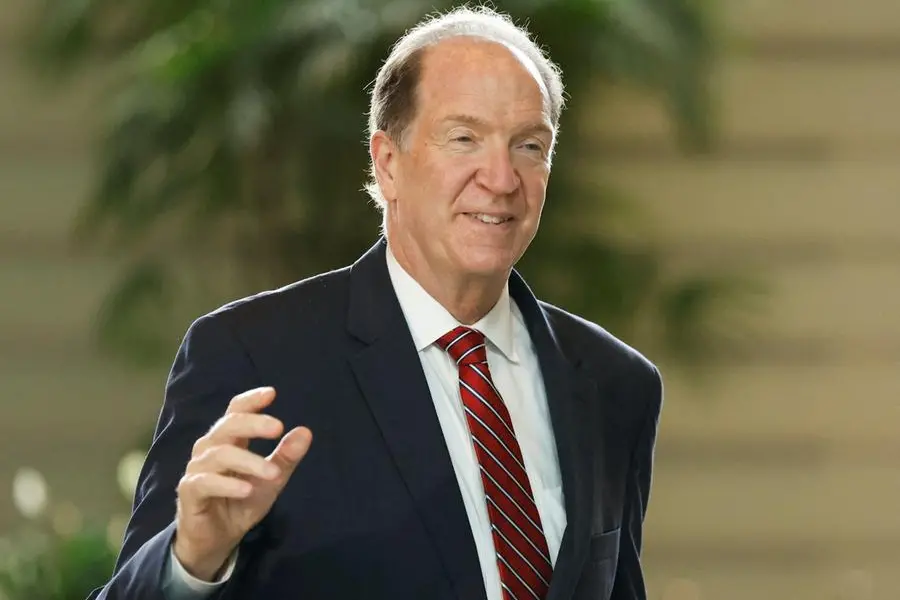PHOTO
The World Bank Group president on Wednesday said the Middle East and North Africa (Mena) countries need innovative solutions and the right institutions as the region faces unprecedented environment and challenges.
“The Mena region is facing unprecedented droughts, water scarcity, desertification, coastal erosion, and air pollution. This crisis requires a new way of thinking, innovative solutions and the right institutions to implement them. Current and future governments need to balance complex goals,” said David Malpass, president of the World Bank Group.
He said as countries look for ways to ensure food security and protect the poor in today's high-price environment, untargeted and inefficient subsidies are straining tight budgets, distorting global markets and destroying the private sector.
“This is an intricate balancing act in turbulent waters. Governments need to act with impact through these complexities and create conditions for sustainable and inclusive growth.”
While speaking on the third day of the World Government Summit in Dubai on Wednesday, Malpass asked countries, especially in the Mena regions, to make the government-owned companies more market-oriented and financially strong.
“An important part of the effort to build efficient markets, particularly for the Mena region, is transforming state-owned enterprises into well-governed, market-oriented and financially sound enterprises.”
State-owned enterprises (SOEs) in the region operate inefficiently, taking on huge debts on their balance sheet that put additional burdens on the countries’ budgets.
In order to improve efficiency, regional countries have decided to take SOEs private and list them on the local bourses in order to bring further transparency.
Avoid protectionism
The World Bank president called on governments to implement sound macroeconomic policies, including monetary exchange rates, and fiscal and trade policies.
“Stable currencies can facilitate private capital flows, foreign direct investment and trade. Countries should promote trade facilitation and avoid protectionist measures, such as the latest wave of export bans on food and fertilizers and the local content requirements that will impede trade. Such market barriers hit poor consumers in low-income food-importing countries the hardest,” he added.
Malpass added that countries should encourage more investment to create jobs, increase output and boost production, allowing growth and consumption.
“Governments need to integrate climate and development in ways that increase energy access and speed up the transition to lower carbon energy,” he said.
Copyright © 2022 Khaleej Times. All Rights Reserved. Provided by SyndiGate Media Inc. (Syndigate.info).





















